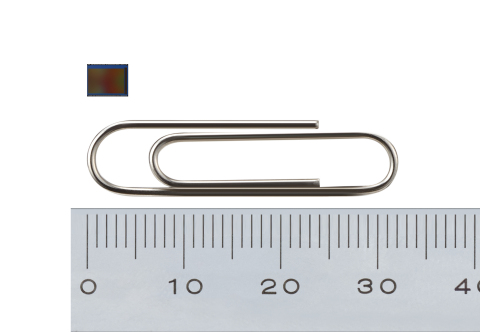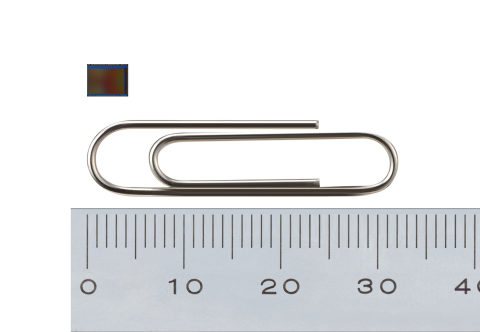SEOUL, South Korea--(BUSINESS WIRE)--Samsung Electronics Co., Ltd., a world leader in advanced semiconductor technology, today introduced the industry’s first 0.7-micrometer (μm)-pixel image sensor, the 43.7-megapixel (Mp) Samsung ISOCELL Slim GH1. Thanks to advanced ISOELL Plus technology, the new ultra-high-resolution GH1 image sensor embraces 43.7-million 0.7μm-sized pixels in a super-small package, providing the optimum solution for slim full-display devices.
“Samsung has been stepping up in pixel technology innovation from the industry’s first 1.0μm-pixel image sensor, to most recently, 0.8μm ultra-high-resolution sensors at 64Mp and 108Mp,” said Yongin Park, executive vice president of the sensor business at Samsung Electronics. “We are pleased to deliver yet another breakthrough with the industry’s first 0.7μm pixel image sensor, the ISOCELL Slim GH1 that will enable sleeker and more streamlined designs as well as excellent imaging experiences in tomorrow’s smartphones.”
The ISOCELL Slim GH1 is the industry’s first mobile image sensor to adopt the smallest pixel size in the industry at 0.7μm. By utilizing ISOCELL Plus, Samsung’s latest pixel isolation technology that minimizes color cross-talk and optical loss, the tiny 0.7μm pixels are able to absorb sufficient light information to produce bright and vivid photographs. In low-light environments, the GH1 makes use of pixel-merging Tetracell technology that enables higher light sensitivity equivalent to that of a 1.4μm-pixel image sensor.
For video recording at 4K (3,840x2,160) resolutions, the ISOCELL Slim GH1, with a high resolution of 7,968x5,480, is able to take 4K videos with minimum loss in field of view (FoV), while most high-resolution image sensors crop or scale down full image resolutions that result in a reduced FoV. Using Tetracell technology, the GH1 is converted down to 3,984x2,740, a resolution that snugly covers the 4K (3,840x2,160) resolution, allowing users to capture more detailed backgrounds when recording high-resolution videos or selfies at 60 frames per second (fps).
For sharper photographs and video, the GH1 supports a gyro-based electronic image stabilization (EIS) and a high-performing phase detection auto-focus technology, Super PD, allowing fast and accurate autofocus. In addition, the real-time high dynamic range (HDR) feature delivers more balanced exposure and richer color even in mixed-light environments.
The Samsung ISOCELL Slim GH1 is expected to be in mass production by the end of this year.
About Samsung Electronics Co., Ltd.
Samsung inspires the world and shapes the future with transformative ideas and technologies. The company is redefining the worlds of TVs, smartphones, wearable devices, tablets, digital appliances, network systems, and memory, system LSI, foundry and LED solutions. For the latest news, please visit the Samsung Newsroom at http://news.samsung.com.
* Samsung first announced its ISOCELL technology in 2013, which reduces color cross-talk between pixels by placing a physical barrier, allowing small-sized pixels to achieve higher color fidelity. Based on this technology, Samsung introduced the industry’s first 1.0um-pixel image sensor in 2015 and a 0.9-pixel sensor in 2017. In June 2018, Samsung introduced an upgraded pixel isolation technology, the ISOCELL Plus.




